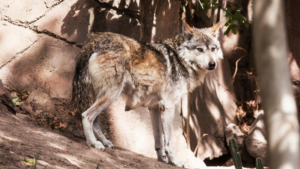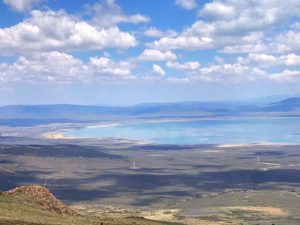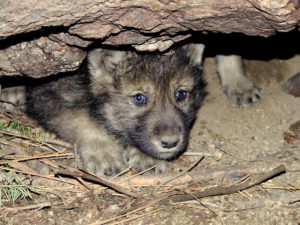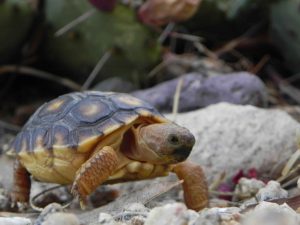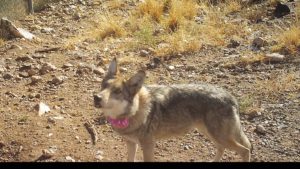Because we are careful in selecting cases, and use the strong combination of law-plus-science to prosecute the cases we bring, WWP has established a strong track record of victories – not only in court, but on the ground too.
In Wyoming, for example, WWP filed suit in September 2003 challenging grazing by rogue rancher Frank Robbins on 50,000 acres of public lands in the Bighorn Basin, near the Wind River mountains. This lawsuit has already succeeded in forcing BLM to rescind a behind-closed-doors “settlement” with Robbins – and resulted in halting Robbins’ grazing in 2004. We are now moving to have the court order BLM to rescind Robbins’ permits because of his history of violating environmental laws; and intend to prohibit further grazing by Robbins on public lands in 2005 and future years.
In Utah, WWP filed federal court litigation in 2002, challenging BLM’s issuance of over 70 grazing permits covering 1.5 million acres in the northern part of the state. We are now nearing final settlement of this case, which will require BLM to conduct riparian inventories and improve stream conditions, while using the latest science to prepare a comprehensive environmental analysis of livestock grazing Impacts.
In northern Nevada – where there are really no other conservation groups examining BLM and Forest Service land management decisions – WWP has brought several court cases and administrative appeals that are shaking up the agencies and ranching industry. One case, settled last year, required the Forest Service to improve stream protections from grazing on dozens of allotments in the Humboldt-Toiyabe National Forests. A second case, which we just won, requires BLM to perform a full Environmental Impact Statement assessing grazing Impacts upon sage grouse and other sensitive species on over a million and a half acres in the Elko region. WWP also just won an administrative appeal blocking BLM from embarking on a costly new “welfare ranching” program in the Squaw Creek area.
Much of the focus of WWP’s legal efforts, however, continues to be on Idaho public lands. In the stunning canyonlands of the Jarbidge and Bruneau rivers, we are challenging BLM’s mismanagement of grazing on 1.4 million acres. We won a court injunction this summer blocking ranchers from increasing grazing beyond their permit limits, which BLM tried to allow under the authority of a recent grazing “rider.” That case will next demonstrate that BLM has wrongly “outsourced” its scientific monitoring and assessment to the livestock industry, dominated by Simplot Livestock Company – the single largest public lands rancher in the United States.
WWP is also continuing its focus on improving streams and uplands on the 1.8 million acres of the Owyhee Resource Area, in southwestern Idaho. WWP previously won a sweeping injunction – affirmed by the 9th Circuit appeals court – requiring BLM to conduct detailed assessments of all allotment conditions, and ordering interim stream protection measures. But the Bush Administration has forced out BLM staff trying to do their job, and brought in rancher “experts” to run the Owyhee office. WWP is now bringing court cases and appeals to prevent this political interference from weakening grazing reforms in this area.
Finally, in central Idaho, WWP’s Greenfire Preserve has provided the base for many legal efforts intended to improve fisheries and wildlife habitat values. We continue to use the Endangered Species Act to force irrigators on public and private lands to modernize their diversions, and promote recovery of salmon, steelhead and bull trout. We are suing the Forest Service to force it to adhere to the Salmon Challis National Forest plans in managing livestock grazing and range improvements. We have protected wolves from being killed on the Sawtooth National Recreation Area for the last three years. This year we won another injunction ordering the Forest Service to close large parts of the Lower East Fork allotment (in the Boulder-White Cloud mountains) to livestock grazing because of cattle damage to high altitude lakes and streams.
As a direct result of these efforts, streams are now flowing that were historically dammed and diverted; riparian areas are recovering; and ranching operators in central Idaho are having to spend money to improve their operations – or are now willing to seek permanent retirement of their grazing allotments or water rights. The fact that ranchers in the East Fork Salmon River drainage are willing to support a Boulder-White Clouds wilderness bill, with federal retirement of their grazing permits, demonstrates the power of WWP’s legal efforts in central Idaho.

